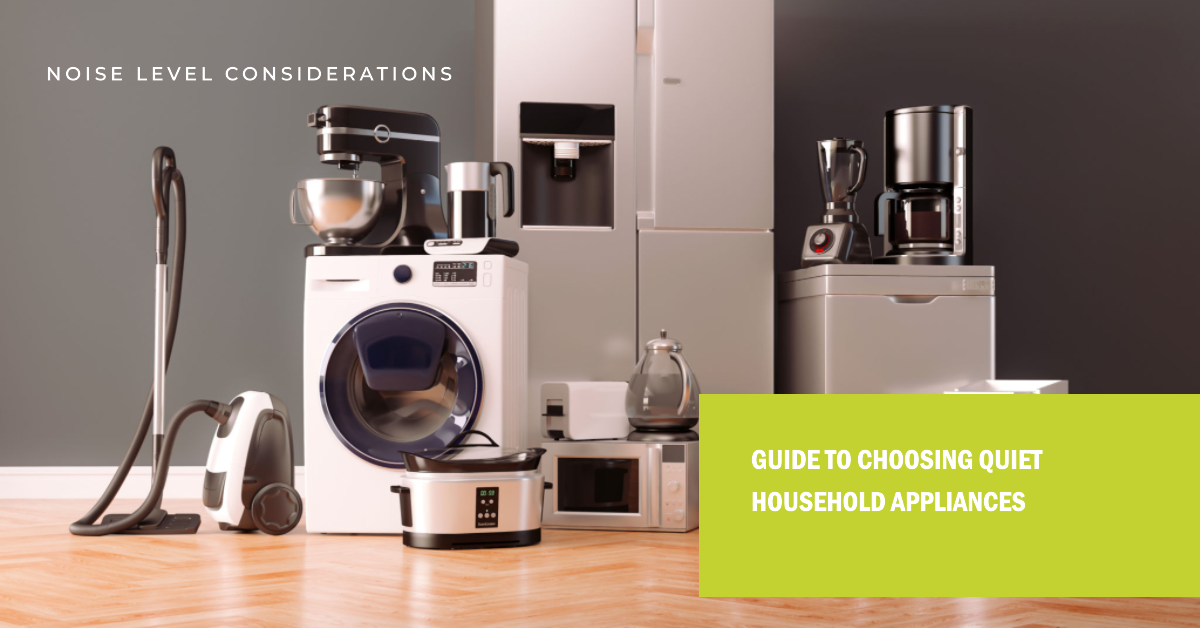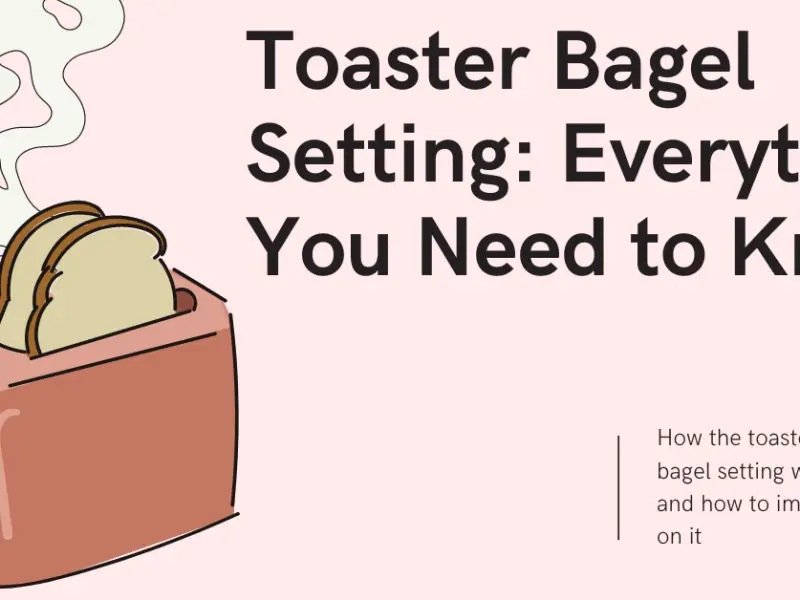I am a well-rounded expert with proficiency in several fields. My experience spans from being a dedicated chef and homemaker. As a passionate homesteader, I’ve honed my skills in sustainable living and animal care, ensuring a holistic approach to everything I undertake. Email me or Txt: (# removed due to spam, please email)
A peaceful home environment plays a crucial role in our daily lives, and choosing quiet household appliances can significantly contribute to maintaining tranquility.
This guide will provide an overview of common household appliances and their typical noise levels while highlighting popular brands known for quiet appliances.
By understanding appliance noise ratings and utilizing tips for choosing quiet appliances, you can create a more serene home atmosphere.

Understanding Appliance Noise Ratings
Noise levels are measured in decibels (dB), and this unit helps determine how loud an appliance is. When shopping for appliances, pay attention to the decibel ratings to better understand their noise output.
A lower dB rating indicates a quieter appliance, making it essential to consider noise levels when purchasing household appliances.
For instance, dishwashers can range from 40 dB (whisper-quiet) to 60 dB (audible conversation), while washing machines typically range from 50 dB to 75 dB.
Popular Brands Known for Quiet Appliances
When seeking out quieter appliances, it’s helpful to be aware of brands that have a reputation for manufacturing low-noise products:
- Refrigerators: Brands like Bosch, Samsung, and LG are known for offering quiet refrigerator options.
- Dishwashers: Miele, Bosch, and Whirlpool are popular choices for noise-conscious shoppers.
- Washing machines and dryers: LG, Electrolux, and Samsung are recognized for their quiet laundry appliances.
- Air conditioners and fans: Dyson, Mitsubishi, and Frigidaire have a reputation for producing low-noise cooling appliances.
- Vacuum cleaners: Miele, Shark, and Dyson are often praised for their quiet vacuum cleaner models.

Tips for Choosing Quiet Appliances
To select the quietest appliances for your home, consider the following tips:
- Research and compare noise levels of different brands and models. Utilize online resources and manufacturer websites to gather information on appliance noise ratings.
- Look for energy-efficient models with noise reduction features. These appliances often incorporate advanced technology to minimize sound output.
- Read customer reviews to gain insight into real-world noise experiences with specific brands and models.
- Prioritize noise levels based on appliance location and usage. For example, a quiet dishwasher might be more critical in an open-concept kitchen than a laundry appliance in a separate room.
Consider purchasing appliances with variable speed or quiet mode options. These settings allow you to adjust the sound output to fit your needs.
Invest in soundproofing materials such as acoustic foam or insulation for appliance areas that are particularly noisy.
Consult with a professional installer or contractor who can recommend and install noise-reducing measures, such as anti-vibration pads or sound barriers.
Lastly, consider the overall noise level in your home environment. Reducing background noise from other sources, such as traffic or household activities, can also help minimize the impact of appliance noise.

Strategies for Reducing Appliance Noise
Here are a few ways to further mitigate appliance noise:
- Ensure proper installation and maintenance of appliances to avoid excessive vibrations and noise.
- Use soundproofing materials or vibration-absorbing mats under appliances to minimize sound transmission.
- Plan appliance usage during times when noise is less disruptive, such as when family members are away or during the day.
- Invest in smart home technology to control appliance usage remotely and schedule operations during quieter times.
Impact of Appliance Noise on Health and Well-Being
Continuous exposure to noisy appliances can negatively impact sleep quality, mental health, and stress levels. Creating a quiet home environment is essential for overall well-being, making it crucial to prioritize low-noise appliances when shopping.
In addition, exposure to high levels of noise from appliances can lead to hearing damage and tinnitus, a ringing in the ears.
Prolonged exposure to noise can also lead to headaches and migraines, and in severe cases, it can cause cardiovascular problems.
For those who work from home or spend a significant amount of time in their homes, appliance noise can be a significant source of stress and distraction.
By prioritizing low-noise appliances and regularly maintaining them, homeowners can reduce the negative impact of appliance noise on their health and well-being.

Conclusion
Understanding and considering noise levels when choosing household appliances is vital for maintaining a peaceful home.
By researching and comparing brands, focusing on energy efficiency and noise reduction features, and utilizing strategies to minimize appliance noise, you can create a more serene living environment.
So, prioritize quiet appliances and enjoy the tranquility and improved well-being that comes with a peaceful home.




